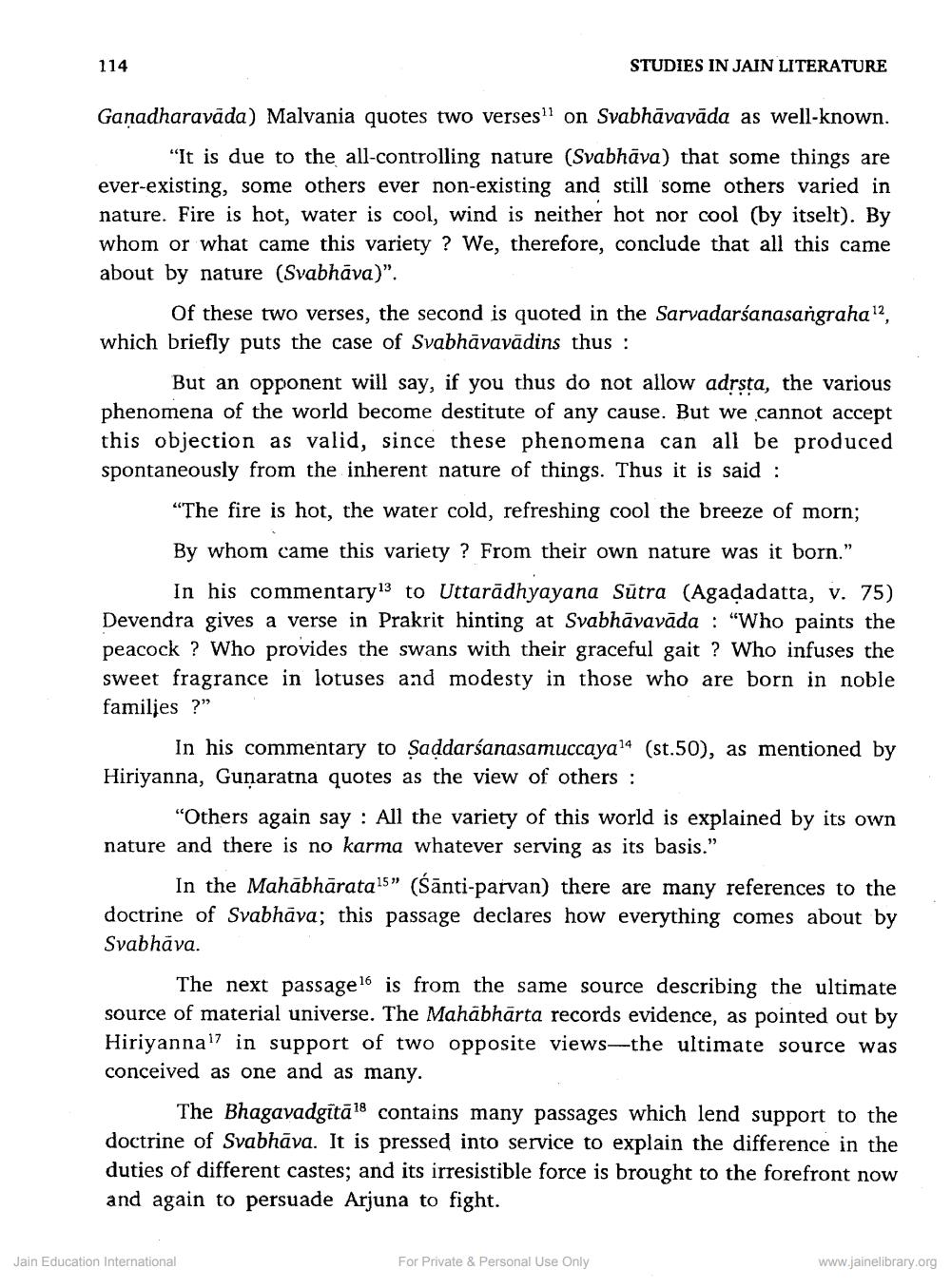________________ 114 STUDIES IN JAIN LITERATURE Ganadharavada) Malvania quotes two verses' on Svabhavavada as well-known. "It is due to the all-controlling nature (Svabhava) that some things are ever-existing, some others ever non-existing and still some others varied in nature. Fire is hot, water is cool, wind is neither hot nor cool (by itselt). By whom or what came this variety ? We, therefore, conclude that all this came about by nature (Svabhava)". Of these two verses, the second is quoted in the Sarvadarsanasangraha12, which briefly puts the case of Svabhavavadins thus : But an opponent will say, if you thus do not allow adrsta, the various phenomena of the world become destitute of any cause. But we cannot accept this objection as valid, since these phenomena can all be produced spontaneously from the inherent nature of things. Thus it is said : "The fire is hot, the water cold, refreshing cool the breeze of morn; By whom came this variety ? From their own nature was it born." In his commentary13 to Uttaradhyayana Sutra (Agadadatta, v. 75) Devendra gives a verse in Prakrit hinting at Svabhavavada : "Who paints the peacock? Who provides the swans with their graceful gait ? Who infuses the sweet fragrance in lotuses and modesty in those who are born in noble familjes ?" In his commentary to Saddarsanasamuccaya 14 (st.50), as mentioned by Hiriyanna, Gunaratna quotes as the view of others : "Others again say: All the variety of this world is explained by its own nature and there is no karma whatever serving as its basis." In the Mahabharata 15" (santi-parvan) there are many references to the doctrine of Svabhava; this passage declares how everything comes about by Svabhάνα. The next passage 16 is from the same source describing the ultimate source of material universe. The Mahabharta records evidence, as pointed out by Hiriyanna"? in support of two opposite views--the ultimate source was conceived as one and as many. The Bhagavadgita 18 contains many passages which lend support to the doctrine of Svabhava. It is pressed into service to explain the difference in the duties of different castes; and its irresistible force is brought to the forefront now and again to persuade Arjuna to fight. Jain Education International For Private & Personal Use Only www.jainelibrary.org




